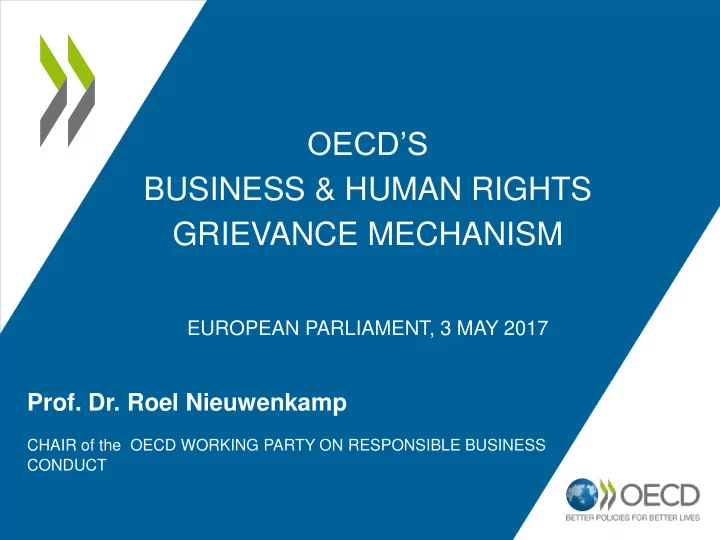

OECD’S BUSINESS & HUMAN RIGHTS GRIEVANCE MECHANISM EUROPEAN PARLIAMENT, 3 MAY 2017 Prof. Dr. Roel Nieuwenkamp CHAIR of the OECD WORKING PARTY ON RESPONSIBLE BUSINESS CONDUCT
Indigenous People’s Rights
Supply Chain Responsibility
OECD Guidelines for Multinational Enterprises • Comprehensive, multilateral agreement on Business & Human Rights • Recommendations to Multinational Enterprises • Binding legal obligation for 47 Governments: set up National Contact Point • = Globally active Business & Human Rights complaints mechanism • ‘Firm expectation’ of company behaviour: ethically compelling: not legally binding, but not optional
Impacts NCP System – 15 years - Approx. 50% cases concern Human Rights (2011-2015) - Approx. 50% of accepted cases -> agreement between parties - Approx. 36% of accepted cases: policy changes company - Impacts such as - Compensation Indigineous People - Ending child labor/ forced labor - Health & safety improved - Better Human Rights Due Diligence - Reinstated workers
Sectoral Human Rights Due Diligence Guidance
Role European Union - EU: leadership role in NCP’s and Due Diligence - 9 EU NCP’s do not fully function - Encourage Strengthening NCP’s and Peer Reviews - Not all EU members are OECD GL adherents (4) - Trade & Investment Agreements
Recommend
More recommend